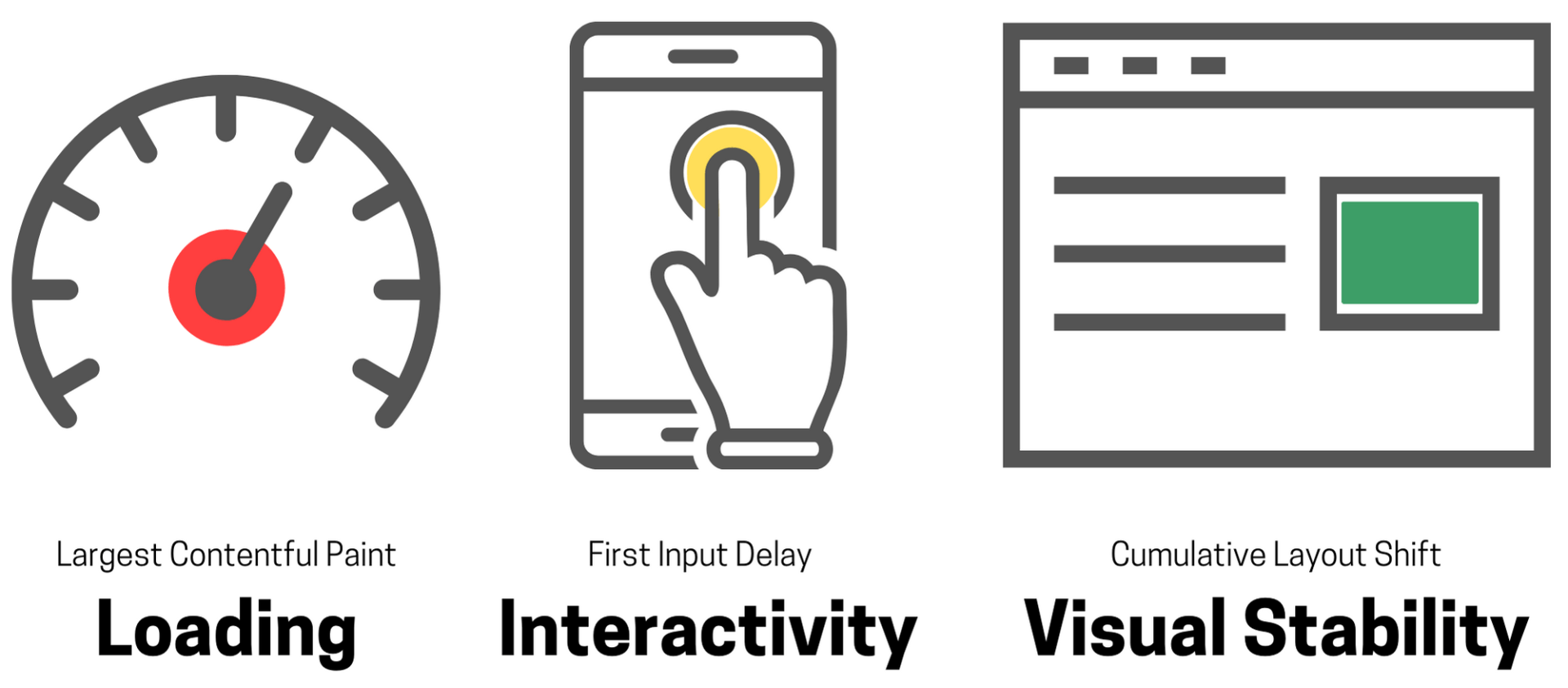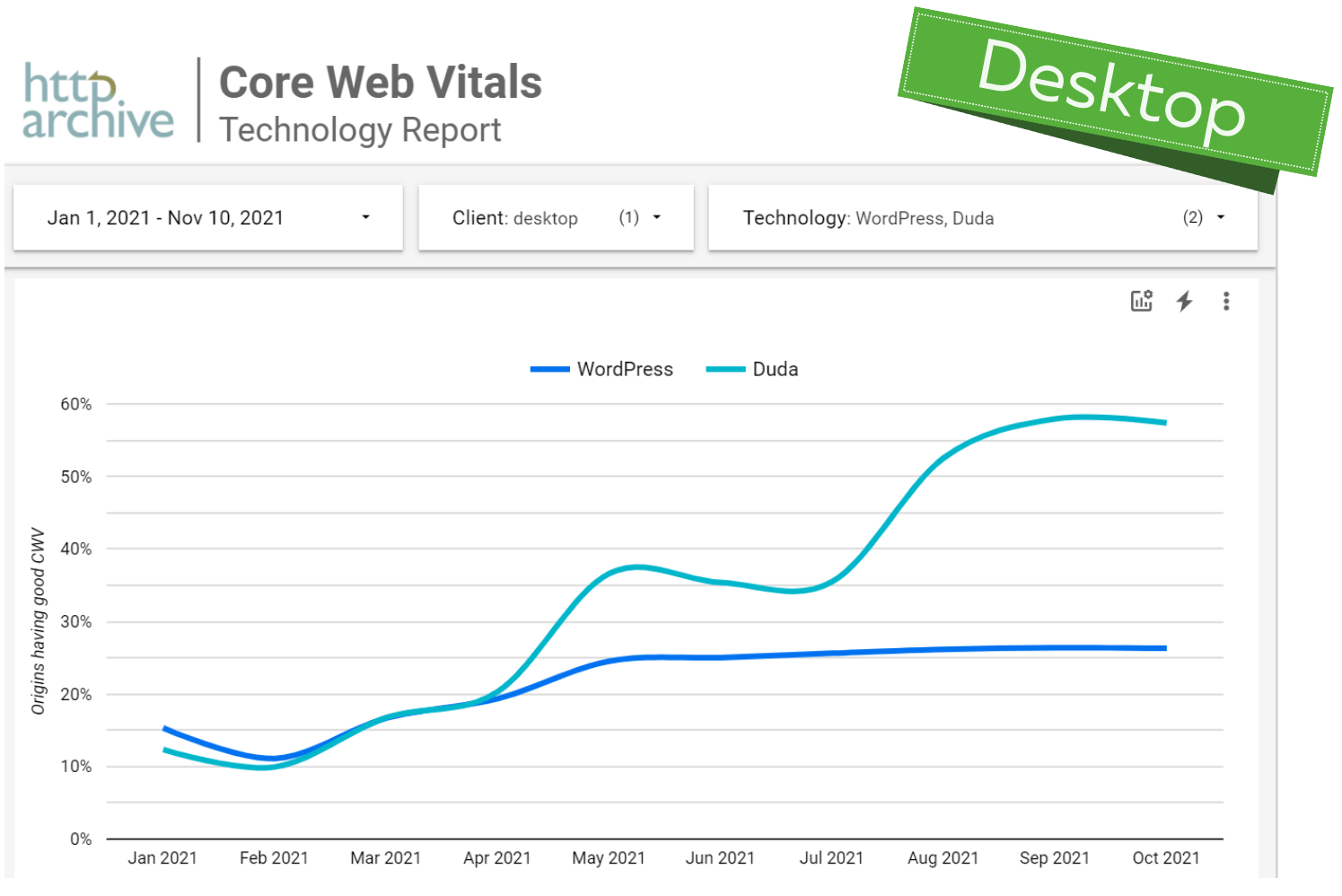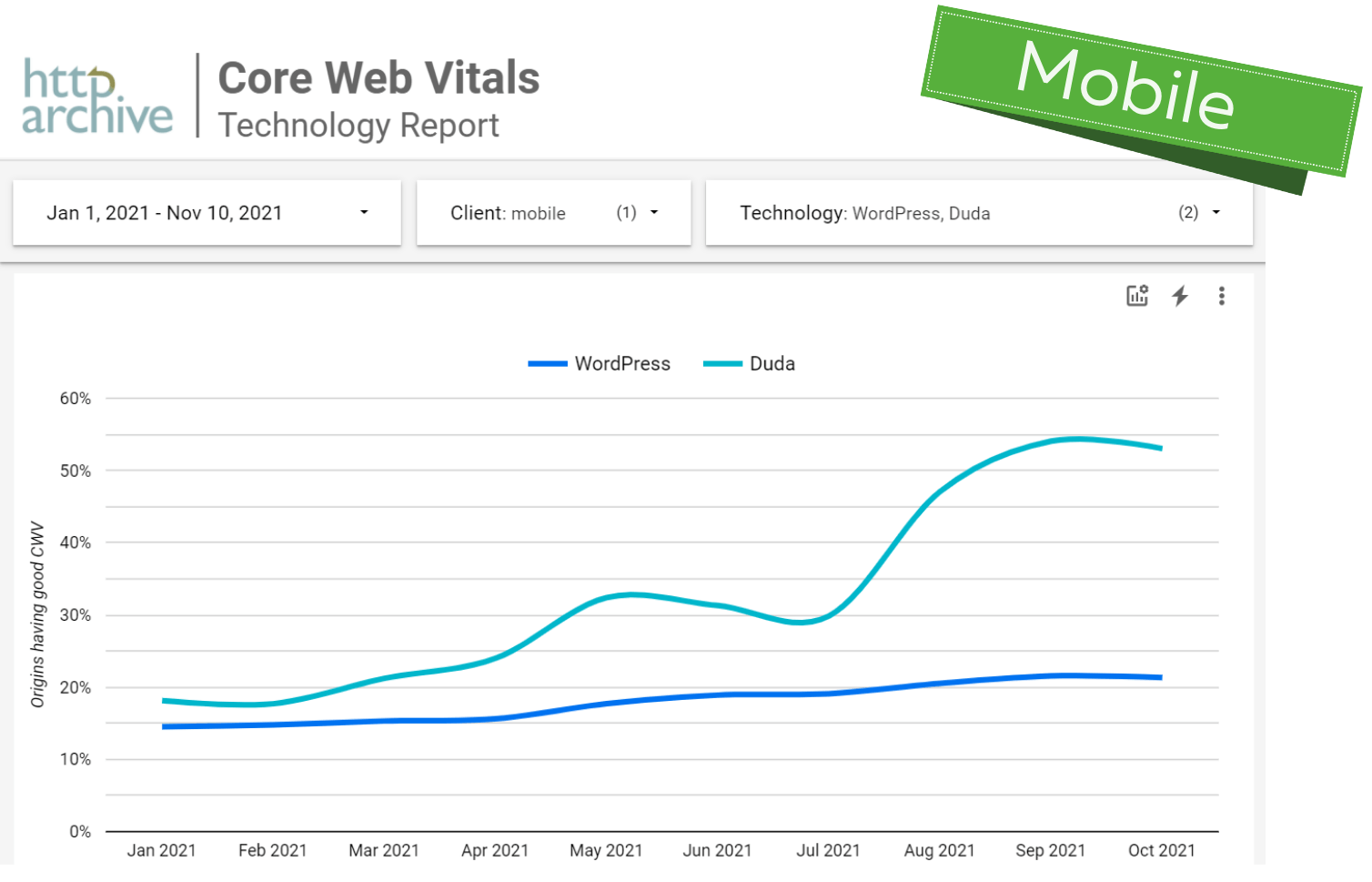What Duda's Core Web Vitals Can Mean For Your Local Business
Recently, HTTPArchive published a dashboard that allows users to view stats and check performance comparisons of several open source and commercial website platforms. The data focuses on Core Web Vitals performance and compares established, open-source platforms like WordPress and Drupal with somewhat newer, commercial platforms like Wix and Duda.
This data is of particular interest to small and local businesses, who are more frequent users of commercial website platforms.
Before we take a closer look at the data, let’s first examine the basis for comparison—Core Web Vitals.
What Are Core Web Vitals?
As we know, user experience is very important to Google. And to ensure its users have a great web browsing experience, Google measures website performance and ranks better performing sites higher in their search results. Core Web Vitals are a sort of subset of Google’s overall experience measurement.
This subset is made up of three distinct factors that Google uses to determine page speed and performance. These are LCP, FID, and CLS.

LCP – Largest Contentful Paint
LCP measures how long it takes for the largest piece of content on the page to appear on the screen. The largest piece of content might be a chunk of text or an image. Obviously, the faster your page loads, the better. Pages that are slow to load are bad news all the way around. Slow pages lead to a poor user experience which ultimately hurts your search engine ranking.
FID – First Input Delay
FID measures the length of time it takes for your site to react to the user’s first interaction. In other words, how long does it take your site to respond when the user clicks a button or takes some other action. Again, your website should load and respond quickly. If it doesn’t, it’s not providing a satisfactory user experience.
CLS – Cumulative Layout Shift
CLS measures your site’s visual stability. Have you ever tried to click a button while a page was loading, but the text and images shifted and you ended up clicking on something else? CLS tracks whether or not the individual elements on your webpage move around while it’s loading and how often it happens. An unstable webpage can leave a user frustrated, which doesn’t make Google very happy.
The Core Web Vitals Report
The HTTPArchive dashboard and accompanying reports tell us something important for small and local businesses—commercial platforms like Wix, Squarespace, and especially Duda, are now a force to be reckoned with in the Google space.
For years, commercial platforms or “DIY site builders” were seen as “second class” by open-source platform developers. And if we’re being honest, that reputation was somewhat deserved, at least for a while. Commercial website platforms started out being incredibly restrictive and catered only to those who were not professional web developers. SEO and end-user experience were not high on the priority list for these platforms.
But in the past few years, Duda, Wix, and the like, have made huge strides in areas of site performance, user experience, and SEO. Part of these advances stem from the fact these platforms aren’t open-source like the grandaddy of platforms, WordPress.
Why It Matters
Many marketing professionals will still tell you the best performing, most attractive websites must be built on WordPress or a similar open-source tool. Here at Locallogy, we know that’s just not true. We build many of our clients’ websites using Duda, for a couple of reasons.
Our clients are small to medium sized local businesses. They’re nimble, they’re innovative, and it’s imperative they have the flexibility to make updates to their websites on the fly. A platform like Duda is powerful enough to allow our team to build an incredibly effective, beautifully designed website while being accessible enough to allow our clients (who are not web developers) to make updates and tweaks when needed.
The other reason we use Duda is because of its performance, which is evident in its Core Web Vitals score.
Take a look at Duda’s mobile and desktop performance scores for 2021 compared to those of WordPress. Duda consistently comes out on top.


While Duda leads the pack in performance among its commercial counterparts, Wix and Squarespace are climbing ahead of the open-source platforms, too. This means a high-performing website is within any business owner’s grasp, not just those who have the time, money, or know-how to deal with WordPress.
Conclusion
What do these comparisons mean? And what does this data really tell us?
It’s easy to get lost in the sea of Google statistics, platform comparisons, and performance metrics. Here’s what you need to know: If you’re a local business owner, you need to get your website in front of as many potential customers as possible. You can do this by creating a high-performing, user-friendly site that ticks all the boxes on the Core Web Vitals checklist.
A responsive site + a great user experience = Higher search engine rankings
Higher search engine rankings = More customers on your website
Building a high performing website on a commercial platform can be done, despite what some marketing professionals or old school developers may tell you.
If you want to learn more about Duda and its capabilities, reach out to us at Locallogy. We’d love to chat with you about how we can take your local business to the next level.
Get the Latest Content in Your Inbox
Want to be the first to know about new content? Sign up to get our weekly blog posts sent to your email!






